About 50 asylum seekers have moved into St. Bartholomew shelter since May 20. Residents said they made the long journey to the United States to “feel safe.”
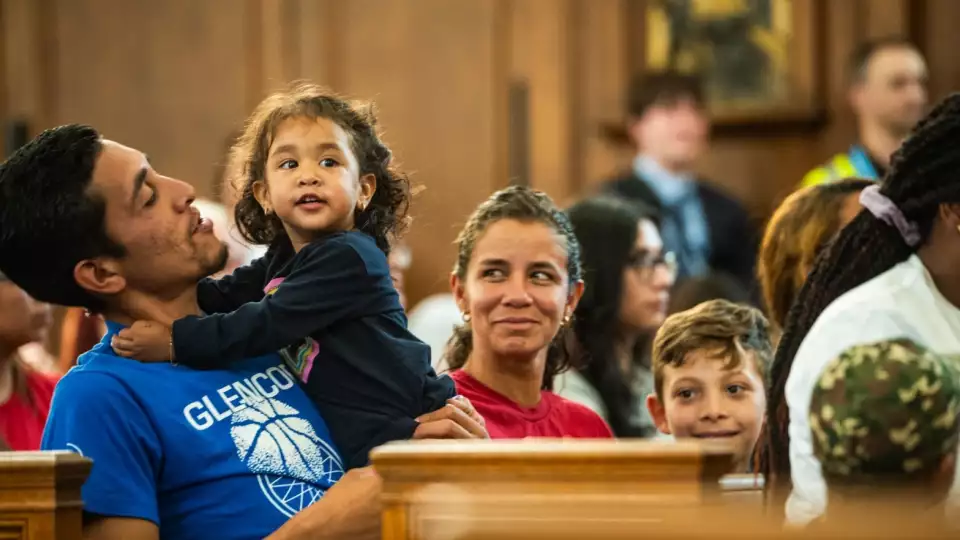
PORTAGE PARK — Migrants living in the newly established St. Bartholomew shelter were welcomed Tuesday to the Far Northwest Side.
Over the past three weeks, about 50 migrants have moved into the church’s convent building. Mayor Brandon Johnson, county board President Toni Preckwinkle, Ald. Ruth Cruz (30th) and other elected officials spoke to new neighbors during a Tuesday night community dinner and resource fair.
“You are a part of the future of the city of Chicago,” Johnson told the new arrivals. “You’re our neighbors now.”
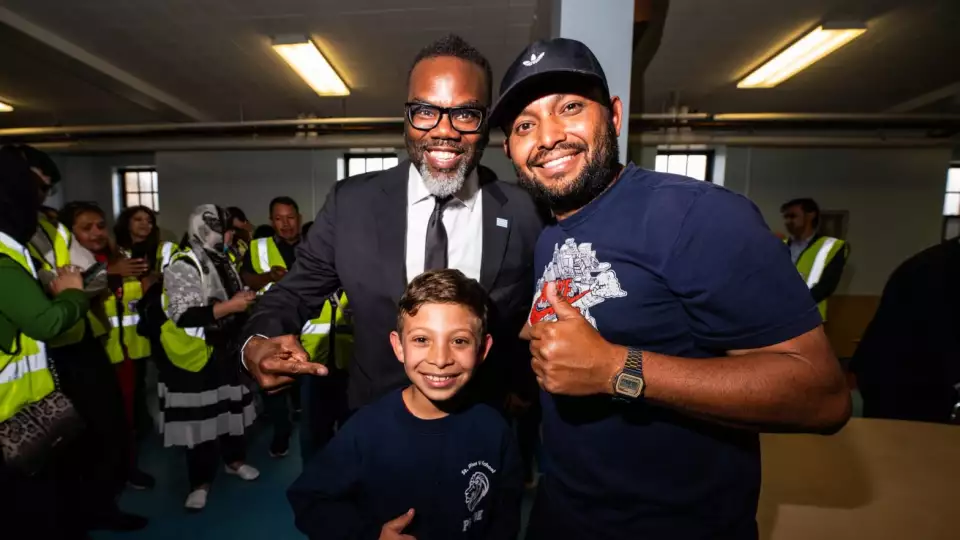
The St. Bart’s convent and former school building, 4910 W. Addison St., are being leased to the city at no cost. The shelter is being run by the Zakat Foundation of America, an international humanitarian agency headquartered in suburban Bridgeview.
Halil Demir, executive director and founder of the Zakat Foundation, said families began moving into the St. Bart’s convent May 20. Over the next two weeks, migrants will begin moving into the school building, which closed last year after merging with Pope Francis Academy, Demir said. The school can accommodate about 250 people, Demir said.
The Zakat Foundation’s goal is to help the new arrivals move out of the shelter system and into more permanent housing as quickly as possible, Demir said.
“We want to normalize their lives,” he said.

After traveling for six months, Omar Ortiz; his wife, Corina Orellana; and their 9-year-old son, Osmar; are trying to regain some sense of normalcy.
Ortiz said he and his family left Venezuela because of government corruption and violence. The family traveled through Colombia, Panama, Costa Rica, Nicaragua, Honduras, Guatemala and Mexico before finally landing in Chicago 10 days ago.
They were bused from Texas to the western suburb of Glen Ellyn and have been at St. Bart’s a little over a week.
“I am really grateful from the bottom of my heart for the hand that they are giving us, for the support they are giving us,” Ortiz said.
Ortiz is trying to get a work permit and said he’s excited to enroll his son in school.
Dugleidy Aponte made the long trek from Venezuela to the United States with her daughter, Mia, who is almost 2.
In Venezuela, “if you don’t die in the street, you die in the hospital,” Aponte said. Hospital power outages are common and there is limited access to medicine, she said.
“Here, we feel safe,” Aponte said, balancing her daughter on one hip.
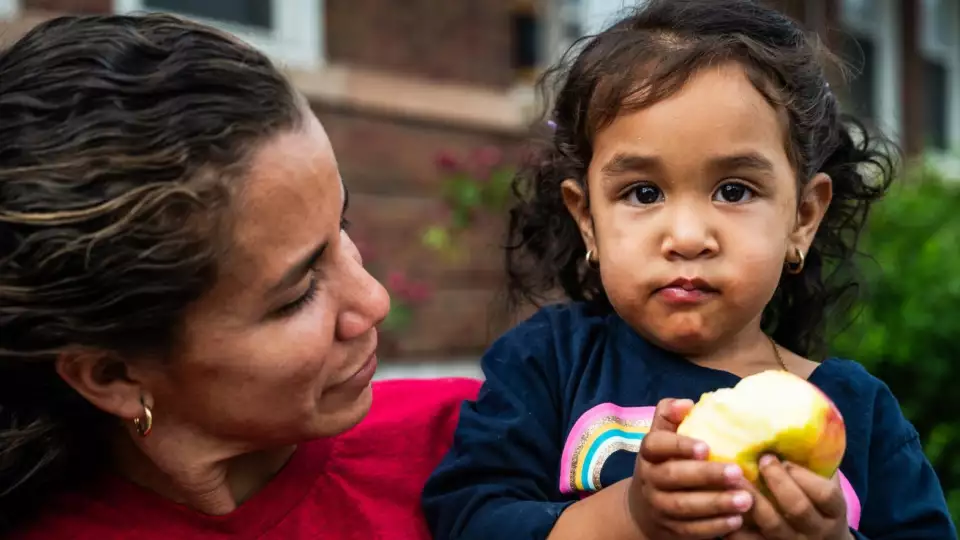
The Zakat Foundation is responsible for staffing the shelter and is assuming all operational costs. The shelter has 12 staff members, with plans to hire 12 more, Demir said.
The foundation plans on offering English classes and job training courses. Demir said they are in need of more bilingual volunteers. The Zakat Foundation’s volunteer sign-up form is here.
When it comes to donations, the shelter needs “almost everything,” and donations of socks, underwear and other personal items are especially helpful, Demir said. Donations can be dropped off at the church any time.
A resource fair was held after the Tuesday night dinner. Organizations like Metropolitan Family Services and the Illinois Coalition for Immigrant and Refugee Rights handed out pamphlets and new arrivals were able to sign up for library cards.
Plans to use St. Barts as a shelter were announced in December.
The Rev. Michael O’Connell said the Our Lady of the Rosary Parish, which includes St. Bart’s and St. Pascal churches, began hosting dinners for the migrants being housed at Wilbur Wright College last summer.
The Zakat Foundation approached the city about operating a shelter and compiled a list of five potential locations, Demir said. All of the buildings would have required extensive renovations. The city offered St. Bart’s instead.
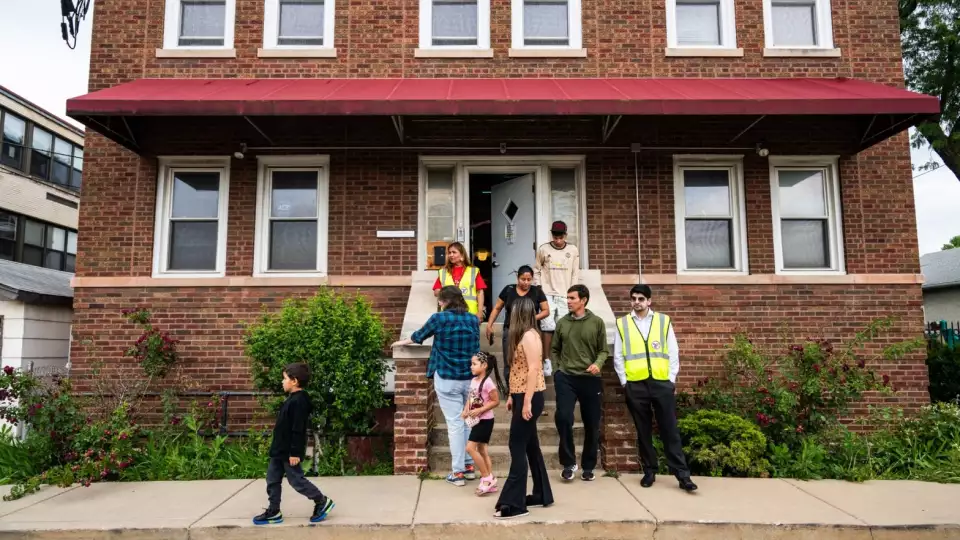
Cook County oversaw the construction of showers in St. Bart’s former school building, and the Zakat Foundation installed air conditioning units in the convent.
The shelter’s lease is six months, though the Zakat Foundation hopes to continue the shelter beyond the initial lease, Demir said. He also said the foundation is in talks with other organizations about operating more migrant shelters.
The Zakat Foundation has provided aid to refugees across the globe, including in Haiti, Syria and Turkey. Closer to home, the Zakat Foundation works with the Rohingya Cultural Center, a West Rogers Park nonprofit that provides things like English classes, case management services and citizenship classes for Rohingya refugees.
Demir asked that neighbors “be compassionate, be merciful, be welcoming.”
“This is Chicago, and this is a multicultural society,” he said. “Everybody, once upon a time was a refugee and everybody else was an immigrant.”
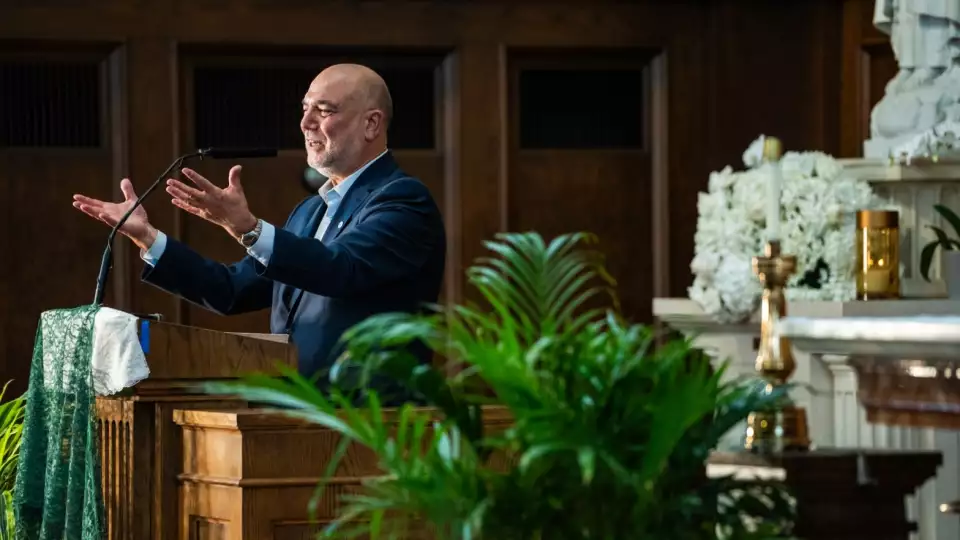
Chicago has welcomed an estimated 43,058 migrants since Texas Gov. Greg Abbott and other border-state politicians began busing them to Chicago in August 2022.
There were 6,937 people seeking asylum living in city-run shelters, 20 people awaiting placement and seven people living in a police station as of Friday, according to city data.
Mayor Brandon Johnson announced a 60-day shelter stay limit for new arrivals in November in an attempt to accelerate resettlement for asylum seekers. Asylum seekers with children enrolled in CPS schools were exempt from the policy during the academic year. CPS classes ended Friday, so 121 asylum seekers will be asked to leave starting this week through June 18, city officials said.






